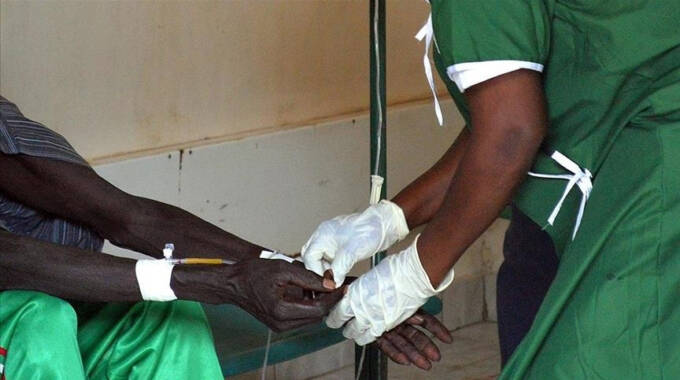
The ManicaPost

Samuel Kadungure
Senior Reporter
AT least 37 new cases of suspected cholera were reported in five districts across Manicaland early this week, bringing the cumulative number of suspected cases since the second phase of the outbreak began to 5 437.
As at January 16, 2024, the province had recorded 5 202 recoveries and 143 cumulative deaths.
No new deaths have been recorded of late due to comprehensive and strategic interventions being deployed to tackle the outbreak.
Manicaland Provincial Medical Director, Dr Munyaradzi Mukuzunga said the adjacent districts of Chipinge and Buhera remain the major hot spots of the outbreak.
Buhera has 17 suspected cases at Gunura (one), Birchenough Bridge Hospital (one), Chabata (one), Chapanduka (one) and Berenyazvivi(13), while Chipinge has nine new suspected cases at St Peter’s.
Mutare Rural also recorded four suspected cases at Zvipiripiri, while Rowa, Chiadzwa, Chishingwi, Matanda and Chinyamazizi have one case each.
Chimanimani District recorded one suspected cholera case at Chakohwa.
“In total, we have 92 cases currently under admission — that is Murambinda Mission Hospital (one), Berenyazvivi (12), Birchenough Bridge Hospital (three), Chapanduka (two), Zangama (four), Mutiusinazita (one), Chabata (one), Gunura( four), Chiadzwa (two), Zvipiripiri (four), Chishingwi (one), Chiwere (one), Chitakatira (one), Zimunya (one), Rowa (one),Chinyamazizi (one),Matanda (one), St Peters (39), Chipangayi (four), Kondo (one), Manzvire (one), Veneka (two), Chakohwa (one) and Mutare City (three),” said Dr Mukuzunga.
Government and its partners — World Health Organisation (WHO), UNICEF, Mercy Corps, Red Cross, Médecins Sans Frontières (MSF), Higher Life, World Vision and Care, among others — has provided an assortment of non-food items like drugs, intravenous rehydration fluids, water chlorinating tablets, cholera beds, soaps and buckets.
They have also rehabilitated boreholes to ensure availability of safe drinking water. Motorbikes have also been refurbished to enhance mobility of infection prevention and control specialists.
Dr Mukuzunga said all gatherings and funerals in cholera-affected areas will continue to be supervised by health care workers in order to ensure adequate clean water and proper sanitation to reduce transmission.
“The biggest danger of cholera is loss of fluid from the body through diarrhoea or vomiting. Do not panic, but act quickly. The sick should drink lots of fluids like the salt and sugar solution made with safe water and quickly report to their nearest health facility.
“Oral rehydration solutions are available in some shops, pharmacies, local clinics and village health care workers. Children with cholera need to continue breastfeeding to replenish all the liquids that are lost while being rushed to the nearest health facility,” he said.
Dr Mukuzunga said cholera presents as watery non-foul smelling diarrhoea and is at times accompanied by vomiting.
“Washing hands with water and soap after using the toilet and before eating remains critical in preventing cholera. People should avoid hand shaking as it spreads the disease,” said Dr Mukuzunga.



